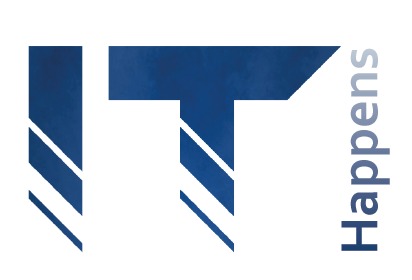Nowadays, lots of innovation stems from start-ups. Small organizations tackle a specific problem by using new and innovative technologies. Even though a few very familiar names such as Uber and Airbnb have broken through, lots of them have not yet broken through, or have already died out again. A lot has been written about success factors regarding start-ups, especially when one is consulting Google. In this article, we will look into the ways that big tech giants take their position for their, sometimes threatening, start-up economy. We spoke with Big Data & Analytics evangelist Jack Esselink who took us with him in IBM’s vision on this subject.
Terms such as Big Data, Cloud and Internet of Things used to be so-called “buzzwords” which have been used by many companies in marketing campaigns. For a long time, it was not entirely clear what these techniques would mean in practice. Now the time has come where it is clear how these techniques can be applied. “Innovation nowadays doesn’t only come from big organizations such as IBM, but especially from start-ups” according to Jack. “Start-ups have a lot of creativity and entrepreneurship within them. These companies are keen on solving problems with smart technologies”.
Big organizations are often not capable of adapting fast because of their size. They are more process oriented in comparison to start-ups. Start-ups are capable of experimenting with processes to improve their services even further. They learn from their mistakes and adapt their servicing accordingly. Big giants do this as well, but this often goes in a much slower way. They try different initiatives in the form of labs, intrapreneurs and incubators, where they try to imitate the ways a start-up works. Decision making often goes through several layers, and creating a flat infrastructure within the organization is often difficult.
Competing with fast-adopting start-ups is difficult for them, even though start-ups grew with big percentages, year by year. Start-ups also have their own problems, however. How do they make sure that their servicing levels will expand if the need for their service is very unclear, despite the possibility that this need will explode?
The above mentioned problems are easily solvable by organizations such as IBM. “IBM offers start-ups a platform, where they can join in a plug-and-play way when they need certain software and/or services”, Jack describes. “Does a start-up need big data analytics or big amounts of calculating power? IBM owns a solution which is directly usable”. IBM calls this the cloud-based platform. The cloud in itself is already a flexible form of a computer where fast adaptation is possible, as well as more calculating power, if needed. IBM adds special software to this cloud-based solution, which can be used for diverse goals. This way, enterprise software is affordable for everyone.
Tech giants such as Microsoft, Google and IBM offer start-ups a complete infrastructure (IaaS), platforms (PaaS) and software (SaaS). An example of this is IBM Watson Analytics. Depending on the needs of the start-up, specific solutions may be chosen. Start-ups sometimes need specific software and/or calculating power which they cannot develop (fast enough) themselves, or it will cost them too much money. They would like to realize their idea, however.
An example of this is the app called ‘Red Ant’ which is used for training sales personnel. The app sends sales data to IBM Watson, which converts this to Unique Selling Points (USP’s). The sales personnel can target and sell more specifically, which will lead to more satisfied customers and better sales. The start-up uses the Watson API, so that they only have to connect their app. Watson will present the wanted analytics accordingly.
The stimulation of start-ups
Next to offering several software services, the tech giant offers even more. “The infrastructure is there, the only thing left is good ideas” as Jack stated. “Start-ups need help developing their ideas and we can help them with that.” Next to the headquarters of IBM in Amsterdam a breeding ground for start-ups is located. IBM tries to stimulate as much start-ups as possible there to work out their ideas.
“It is impossible to think of a world without technology. You just need to know what you can do with it” as Jack stated. Because of this, IBM invests in start-up communities and shares their knowledge on technologies with them. The role of data is in the current economy becoming increasingly more important, and this will keep on doing so. Knowledge on the intersection of data and business is of great importance to spot potential chances and to create a valuable business model. Start-ups develop the knowledge on data and are advised by IBM engineers on how they can use technological developments to use their data effectively. This way, it can be converted to a valuable product or service.
These smart data analysis software works on a basis of technological algorithms. “Algorithms are as if they were black boxes, where people can only see what goes in and what goes out. What happens inside, is sometimes unclear” as Jack states. But exactly these algorithms are the heart of smart software which is used by start-ups. Algorithms are capable of analyzing huge amounts of data and to extract repeating patterns from them. IBM places the human above the technology. It is of great importance that entrepreneurs understand what happens with their data and that this is also transparent to the end-user of the service. “We need people with knowledge of data, people who understand the needs of start-ups as well as people who can understand and solve the problems of start-ups with the use of technology”. Exactly this focus on the human is very important to IBM, because without good knowledge of technology, it may be very hard to create value.
Jack’s vision on the future
This vision is not per se the vision of IBM themselves, but it entails Jack’s personal opinion on the future.
In the future, technology will be present in all aspects of society. This trend is already ongoing, and we are in fact already very dependent on technology to have society work properly. For entrepreneurs this is a perfect time to operate, since all resources are present. “Technology offers a lot of chances, but we have a lot of steps to be made if we want to extract as much value as possible from all of them” as Jack states. Changing gears quickly is important, where value creation is the top priority. At IBM, they work on the newest software to be ahead in the development of start-ups to help them with their day to day processes. IBM hopes that start-ups will continue to be innovative in the future by coming up with creative solutions by using their platform. This way, the world will be much more innovative.
From ITHappens’ side we also see a future where start-ups and tech giants can complement each other. Next to IBM, other tech giants such as Microsoft and Google also stimulate start-ups by offering platforms and knowledge. The tech giants are capable of substituting and helping with the explosive growth of data and computing power so that start-ups can offer their services throughout the world. Start-ups can concentrate on their business model better as well as to continue being innovative with their products and services.



